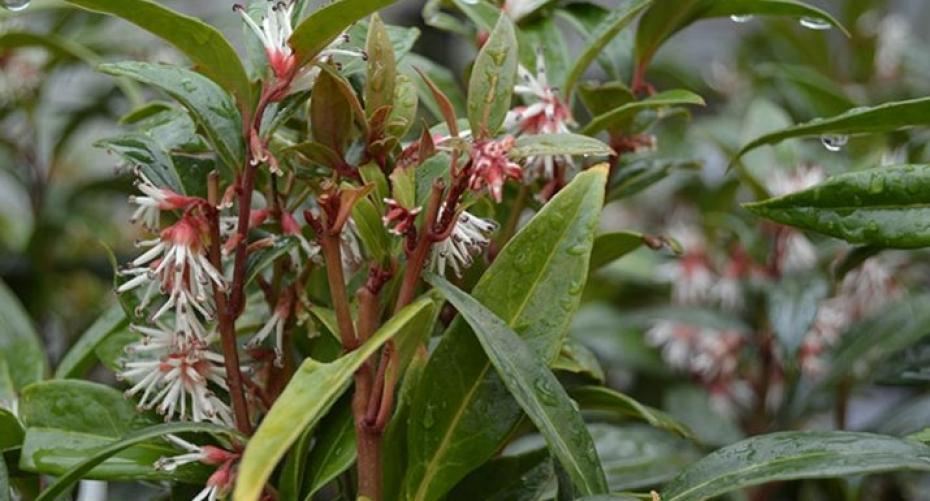Sarcococca hookeriana 'Winter Gem'
Yellow leaves on plants are often due to watering or nutrient deficiency.
There could be several reasons why your leaves are going yellow.The trick is to differentiate between the leaves naturally going yellow and dropping off with age and there being something wrong. If they are just yellowing with age they will do it gradually whereas if something is wrong they will yellow and drop fairly rapidly.
Houseplants
There could be several reasons including: over watering, cold draughts, lack of light, nutrient deficiency or a viral infection. Make sure that the plants don’t sit in water, leave them approximately 30 minutes then throw the water away. Don’t position the plant in a direct line from an open door or window and make sure it receives good light but not direct midday sun, as this will scorch the leaves. Nutrient deficiency can be overcome by applying the correct fertiliser. In the case of a viral infection unfortunately there is no cure and the plant must be destroyed; do not put into any composting or recycling system as this could just spread the disease. A viral infection can often be characterised by the yellowing being blotchy.
Garden plants
The reasons are usually nutrient deficiency, wet or poor soils. In garden plants the yellowing is often accompanied by poor flowering and fruiting and stunted growth in extreme cases. Fruit and vegetables are often vulnerable if grown on very alkaline or acid soils; with a ph of 6.5 being desirable. It is a good idea before starting a vegetable garden to do a simple ph test; cheap kits are available in garden centres. Excessive dryness or waterlogging can affect the plants ability to take up the nutrients required. Clay soils can be improved by adding rough organic matter such as compost, chopped straw, horticultural grit or small chipped bark, if growing vegetables try not to use rotted farmyard manure as this can enhance the acidity of the soil. If soils drain easily incorporate plenty of organic matter, such as compost or well-rotted farmyard manure as this will retain the moisture.
Nutrient deficiency can be overcome by applying the correct fertiliser. Nutrients are often washed out of the soil in winter with the heavy rains, so an application of fertiliser in spring will be beneficial. If the plants are fruiting or flowering a spring application of sulphate of potash should enhance production. In the case of foliage plants an application of chicken manure pellets or sulphate of ammonia should prevent any yellowing.


